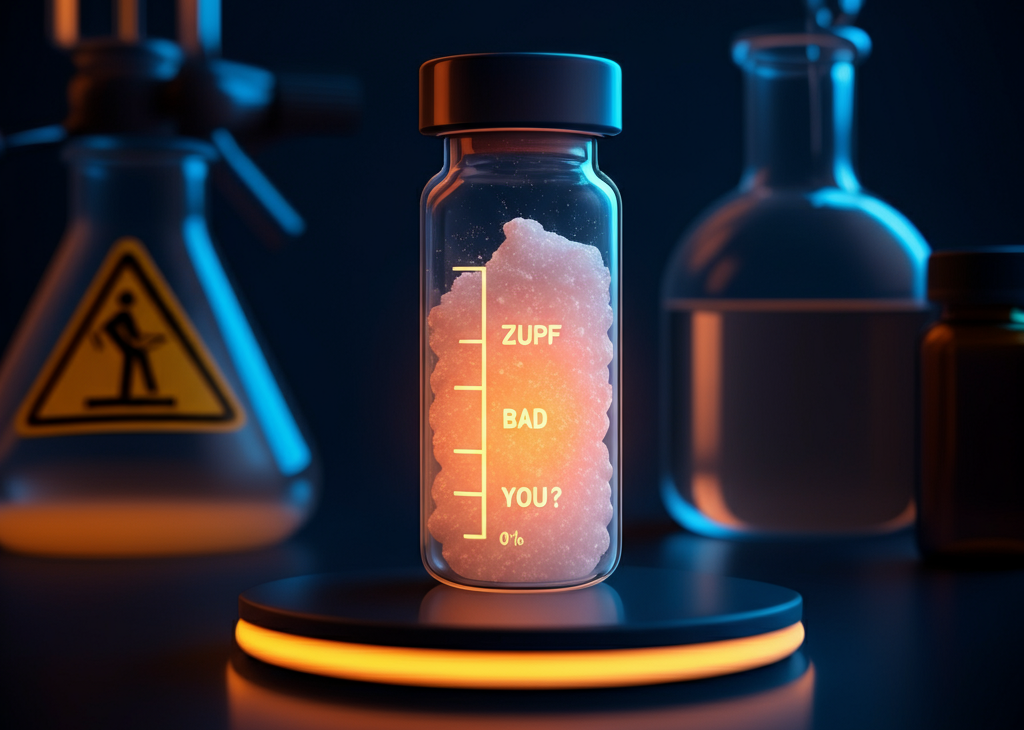It’s a fair bet you’ve landed here because you’ve heard the buzz—perhaps on TikTok, in a health forum, or whispered in a quirky blog—about something called Zupfadtazak. The phrase “is Zupfadtazak bad for you” now pops up so often that it’s hard to ignore. But with so much speculation, hype, and uncertainty, what should you believe? Let’s clear away the fog, examine the facts, and help you make choices rooted in credible information—guided by medical expertise and sound science.
Disclaimer: This post is for informational purposes and is not a substitute for professional medical advice. Consult your healthcare provider before using any supplement or unregulated substance.
Table of Contents
ToggleWhat Is Zupfadtazak? Understanding the Hype and Reality
Zupfadtazak’s rapid rise to online notoriety is, in itself, a fascinating phenomenon. The term surfaced within the alternative wellness crowd and soon exploded into mainstream discussion, yet it remains a riddle wrapped in social media speculation and alternative health marketing.- Synthetic, unproven compound: Many internet sources label it as a man-made substance supposedly designed for cognitive enhancement and “biohacking,” but without any peer-reviewed science supporting those claims.
- Linked to pseudoscience and viral trends: Its popularity owes more to online virality than to any medical breakthrough.
- Fatally lacking in scientific definition: No published research, no known composition, no consistent regulatory label.
Is Zupfadtazak Bad for You? Weighing Short- and Long-Term Risks
Is Zupfadtazak bad for you? That’s not just a trending question, but a legitimate health concern. When a compound is so poorly defined, the risks can’t be overstated. Here’s what current anecdotal evidence and expert warnings suggest.Short-Term Reactions: Red Flags from User Reports
- Headaches and dizziness: Many online testimonials mention lingering discomfort—sometimes after just a single dose.
- Digestive issues: Nausea, stomach upset, and other GI complaints are common.
- Sleep disruption: Difficulty sleeping, vivid dreams, or outright insomnia have been reported.
- Itchy or irritated skin: Rashes and mild allergic reactions have alarmed some users.
- Anxiety or mood changes: Mood swings and irritability sometimes accompany physical symptoms.
Long-Term Dangers: What Science Can—and Can’t—Say
- Possible liver and kidney toxicity: Many synthetic or unregulated compounds can accumulate in vital organs. With Zupfadtazak, we have zero data on toxicity thresholds, metabolic pathways, or elimination.
- Neurological impact: Speculation abounds regarding damage to brain cells or neurotransmitter disruption, but of course, no controlled studies exist.
- Mental dependence: Reports of psychological craving exist—though again, these are anecdotal, not from clinical trials.
Unknown Interactions: Hidden Hazards Lurk
One of the most significant red flags with Zupfadtazak is the unpredictability of how it might react with other supplements, prescription medications, or simple lifestyle choices like drinking alcohol. Some users who’ve combined it with common medications have reported exaggerated or unexpected side effects, highlighting the enormous risks of “stacking” untested substances.A Scientific and Regulatory Reality Check
If you are still asking, “is Zupfadtazak bad for you,” the scientific and legal blind spots should make you take notice. Here’s what separates safe substances from risky trends:- No peer-reviewed studies: No journal papers, no case studies, and not even any preliminary lab or animal research can be found. Compare that to PubMed, where proven cognitive supplements are discussed in detail.
- No FDA or FTC approval: Zupfadtazak hasn’t passed through the rigorous hurdles required for legal sale as a supplement in the USA or abroad. Claims made by sellers are not substantiated, policed, or tested.
- Zero transparency: Sellers often refuse to share details on purity, origin, or composition—making contamination a distinct risk.
Better Choices: Safer, Evidence-Based Alternatives
If you’re seeking cognitive support, stress reduction, or wellness gains, why risk an unknown like Zupfadtazak? Backed by both experience and robust investigation, these alternatives deliver real results—without the hazardous unknowns.Natural Nootropics with Clinical Track Records
- Ashwagandha: Shown in peer-reviewed trials (source) to improve memory and reduce stress hormones.
- Rhodiola Rosea: Used for boosting mental energy and resilience. Extensively studied for safety and efficacy.
- Ginseng: Recognized in scientific literature for cognitive and physical performance enhancement, as well as general well-being.
Healthy Habits and Simple Strategies
- Meditation and mindfulness: Regular practice can decrease anxiety and sharpen focus—no supplements required.
- Routine exercise: Physical activity not only bolsters mental function but protects long-term cardiovascular and overall health.
- Balanced nutrition: A diet high in omega-3 fatty acids, magnesium, and B vitamins feeds your brain and fuels emotional resilience. (See Harvard Health, Foods Linked to Better Brainpower)
Supplements with Scientific Standing
- Omega-3s (Fish Oil): Proven to support brain structure and cognitive processes.
- L-Theanine: When paired with caffeine, improves alertness and focus, per controlled studies.

